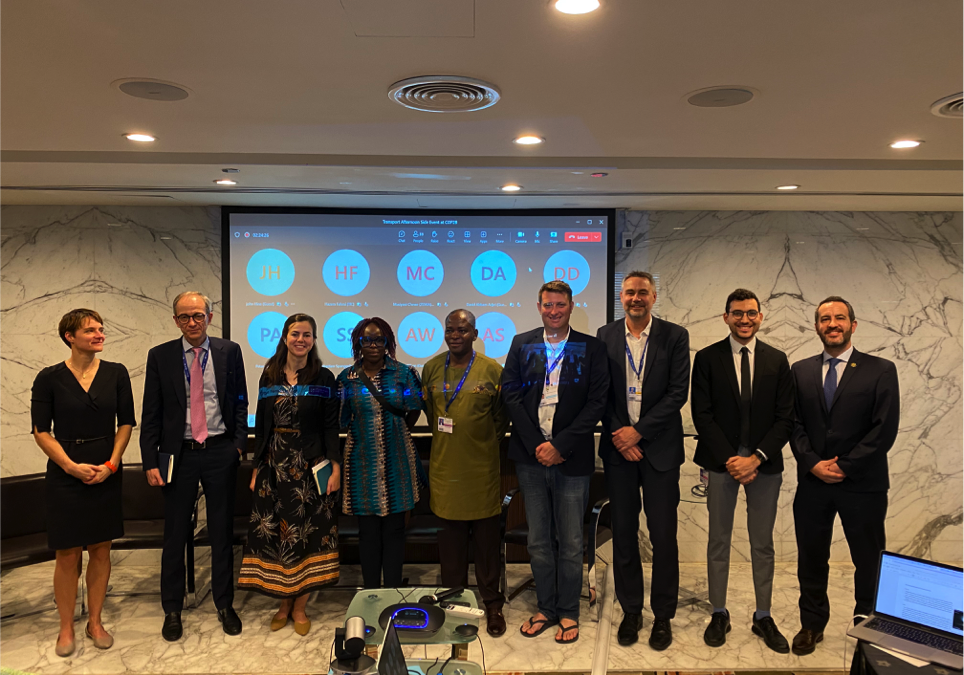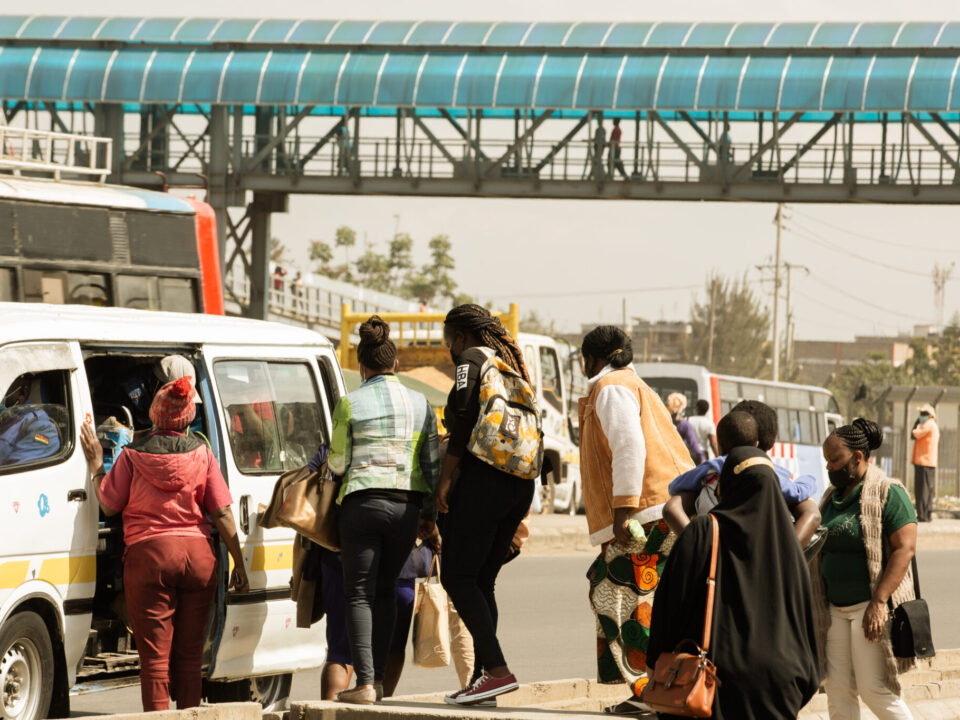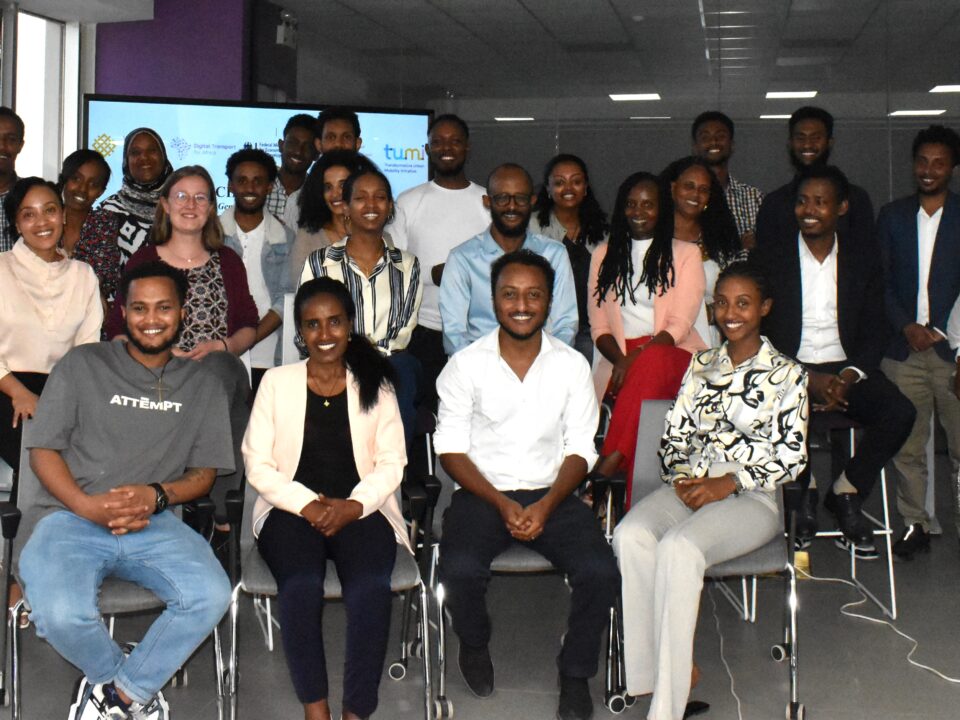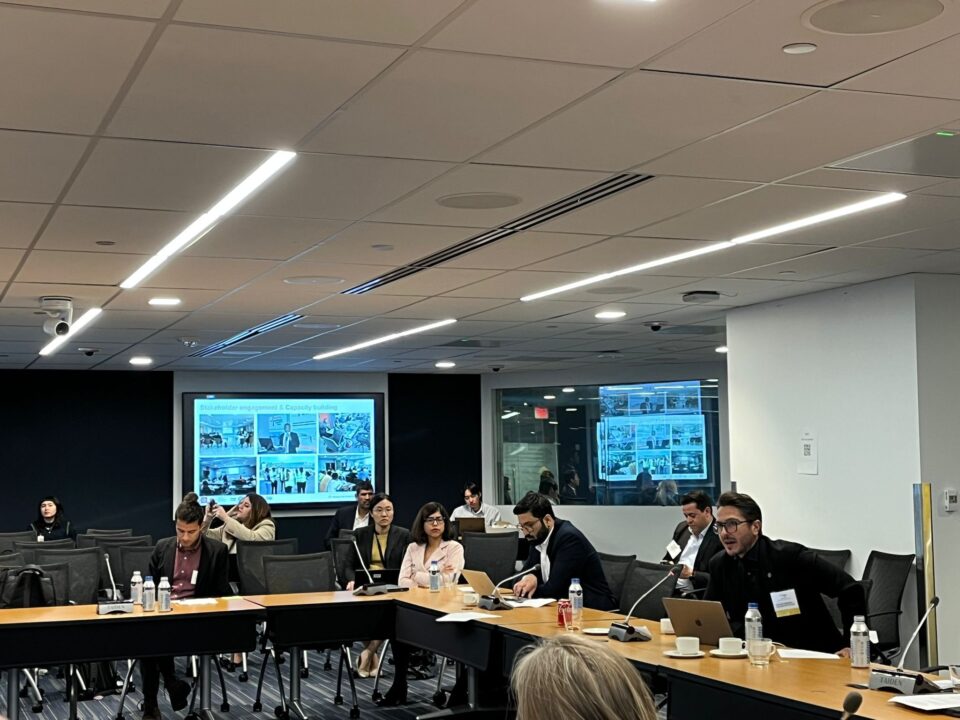
DT4A and Partners at the State of the Map Conference 2023
21 décembre 2023
DT4A Innovation Challenge Updates: AddisMap
21 décembre 2023Transport Decarbonisation, a side event organized by Climate Compatible Growth (CCG) during COP28 in Dubai on December 4, 2023, brought together policymakers, thought leaders, and transport officials to discuss the challenges and opportunities in the informal transport sector within the context of climate change. The event aimed to foster collaboration and drive meaningful change towards a greener and more equitable future in transport.
One of the sessions, titled « Tailoring Climate Action to Informal Transport”, featured WRI and partners –Speakers Felipe Ramirez, Global Urban Mobility Director, WRI, presented emphasized the significance of addressing data gaps in the informal transport sector. The session highlighted the relevance of informal transport in achieving a just transition, ensuring that the transition to sustainable transportation includes and benefits all segments of society. Hazem Fahmi, Spatial Data Scientist, Transport for Cairo, presented preliminary findings on the « Low Transport Carbon Futures in Zambia project”, shedding light on emissions from informal transport and identifying areas for potential improvement, impacted ereas polluting corridors in Lusaka.
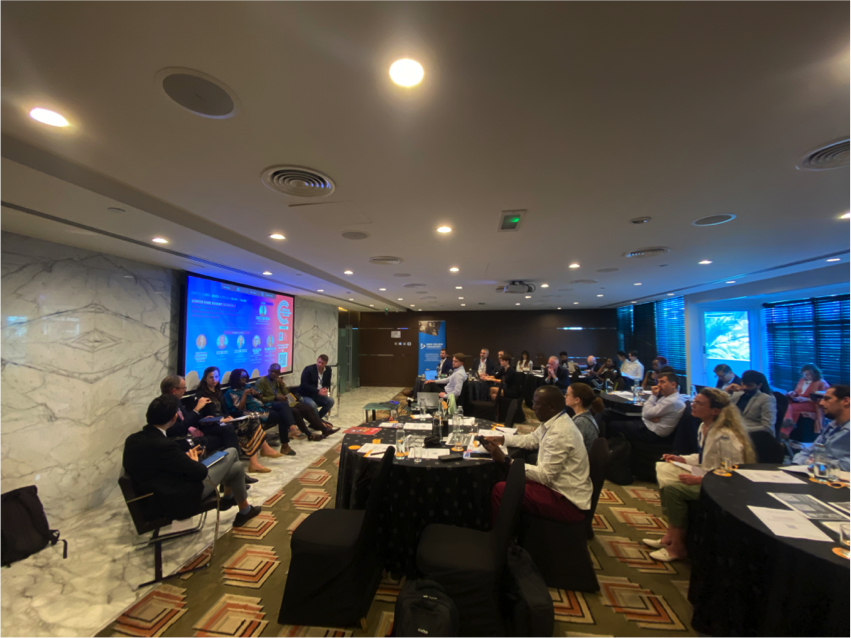
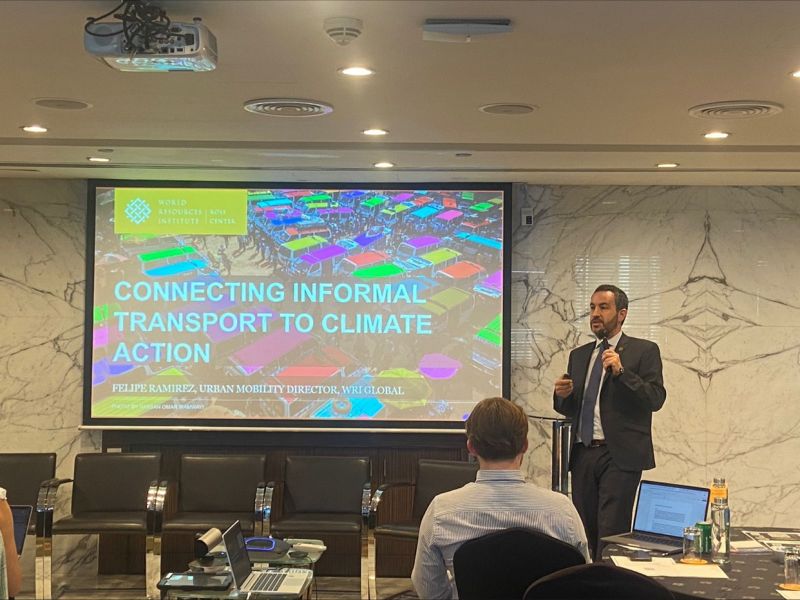
A panel convened by the Climate Compatible Growth and WRI on “Tailoring Climate Action to Informal Transport.” Photo: CCG
The panel discussion, moderated by Mohamed Hegazy, Climate Champions Team, featured a diverse range of participants, including Eléonore François-Jacobs, Deputy Coordinator, MobiliseYourCity, Josh Whale, CEO, Ampersand, Randy Wilson, Head of Transport, Kumasi Metropolitan Assembly, Ghana, Stephane Straub, Chief Economist for Infrastructure, World Bank and Jane Lumumba, Champions Team. These panelists provided valuable insights into the challenges faced by cities in improving the informal transport sector. They highlighted the lack of data and the sector’s often invisible in global climate discussions. The importance of inclusivity, involving operators in decision-making processes, and the role of technology and financing in supporting overall electrification efforts, particularly in Africa, were also emphasized.
To build upon these discussions, it is essential to focus on four key areas: developing comprehensive emissions inventories and data systems for the informal transport sector, improving the quality and accessibility of informal transport services, identifying electrification schemes while addressing energy access and clean energy supply, engaging and involving informal transport operators in decision-making processes and fostering partnerships to ensure their perspectives and needs are considered, and securing adequate financing to support these initiatives.
